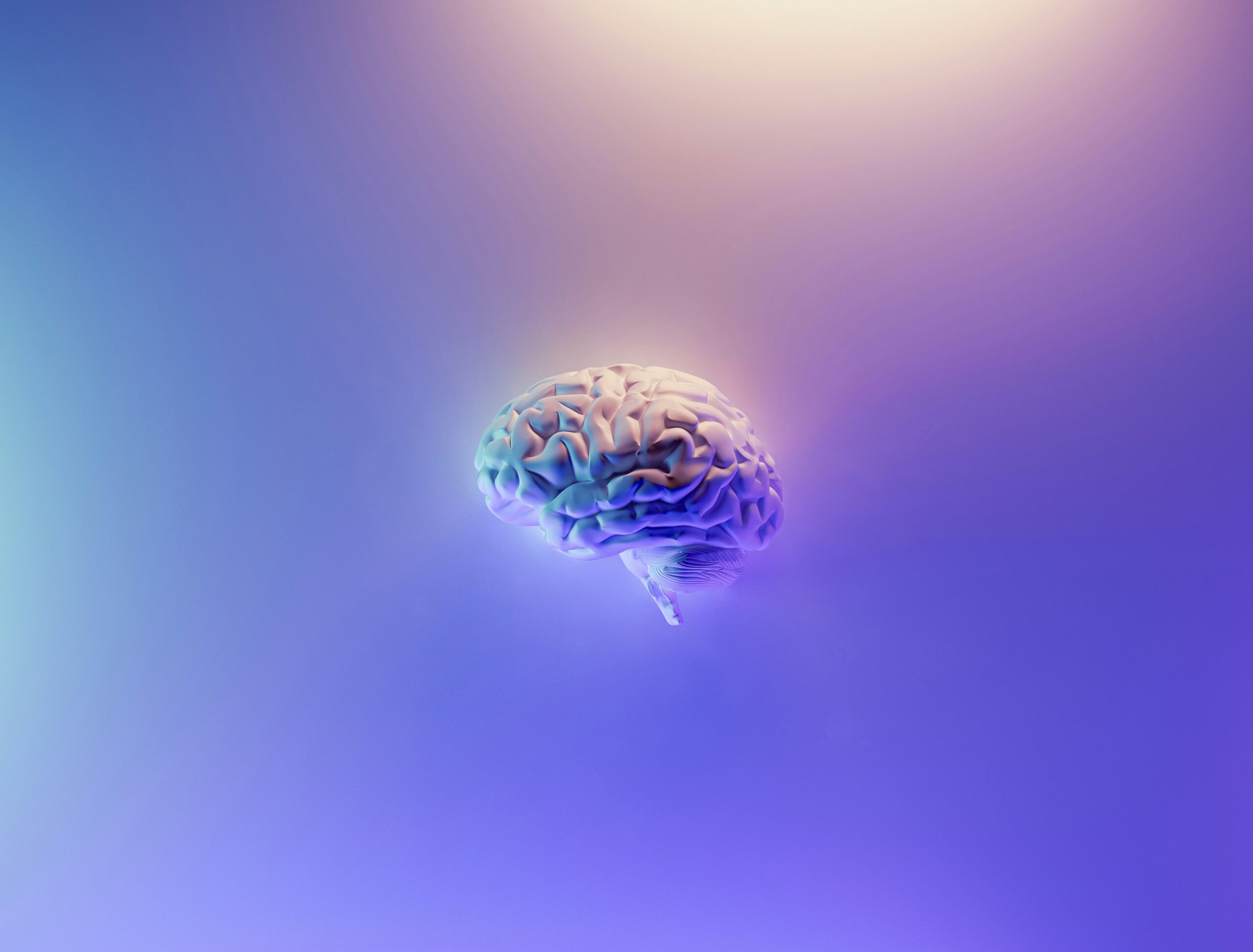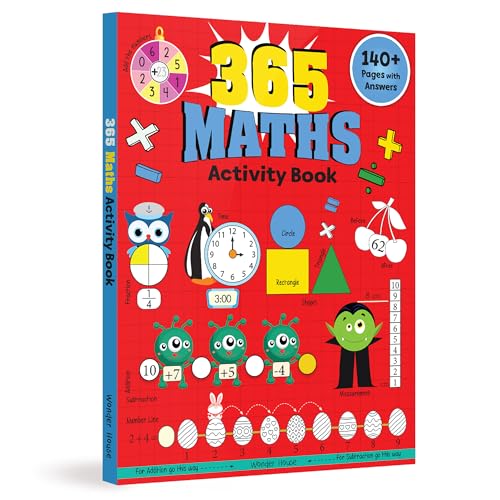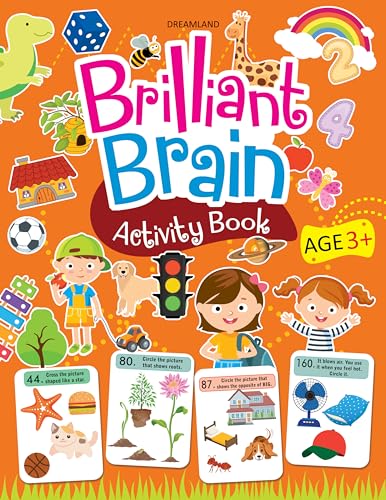
Understanding Brain Power
Brain power refers to the cognitive abilities and mental processes that enable individuals to think, learn, remember, and process information. It encompasses a variety of functions including reasoning, problem-solving, memory retention, and creativity. The significance of brain power in learning and creativity cannot be overstated; stronger cognitive abilities facilitate better understanding of complex concepts, quicker problem-solving skills, and an enhanced ability to generate innovative ideas. This underlying strength in the cognitive domain is essential not only for academic success but also for effective daily decision-making and interpersonal relationships.
To enhance brain power, several methods can be employed. Mental exercises such as puzzles, memory games, and strategic thinking activities stimulate neural connections, improving overall cognitive function. These exercises encourage the brain to adapt and grow, a phenomenon known as neuroplasticity. Engaging in new and challenging tasks can lay the groundwork for improved brain power over time.
Equally important are proper nutrition and lifestyle choices. A balanced diet rich in omega-3 fatty acids, antioxidants, and vitamins has been shown to support brain health. Foods such as fatty fish, berries, nuts, and green leafy vegetables not only nourish the body but also promote cognitive vitality. Additionally, regular physical exercise increases blood flow to the brain, which can enhance mental clarity and cognitive skills. Moreover, adequate sleep is crucial; it is during sleep that the brain consolidates memories and strengthens neural connections.
In essence, understanding and enhancing brain power through consistent mental challenges, healthy nutrition, and optimal lifestyle choices lays the foundation for a more capable and creative mind. By investing time and effort into these areas, individuals can cultivate their cognitive abilities and unlock their full potential.
The Role of Neuroplasticity
Neuroplasticity refers to the brain’s remarkable ability to reorganize itself by forming new neural connections throughout an individual’s life. This concept challenges the long-held belief that the adult brain is static and unchangeable. Instead, neuroplasticity showcases the brain’s dynamic nature, allowing it to adapt to new experiences, learning, and even recovery from injury. Through various mechanisms, such as synaptic pruning and the strengthening of synaptic connections, the brain can enhance cognitive functions and facilitate skill acquisition.
One practical example of leveraging neuroplasticity is learning a new language. Engaging in this process stimulates several areas of the brain, making it necessary to forge new connections that support vocabulary, grammar, and pronunciation skills. Similarly, musical training requires sustained practice and focus, which enhances auditory processing and memory through neuroplastic changes. Such activities exemplify how repetitive engagement and challenges can result in tangible brain improvements, boosting overall cognitive capabilities.
Furthermore, neuroplasticity is not limited to skill acquisition; it can also play a significant role in mental health. For instances, cognitive behavioral therapy (CBT) has been demonstrated to foster positive changes in thought patterns and emotional responses through neuroplastic processes. By reinforcing positive habits and reframing harmful thinking, individuals can cultivate a healthier mindset. This adaptability highlights the potential for personal growth through intentional practice and learning.
It is crucial to acknowledge that while neuroplasticity presents vast potential, the extent and pace of change vary among individuals. Consistent practice, exposure to new experiences, and a willingness to step outside one’s comfort zone are vital for maximizing the benefits of neuroplasticity. By actively engaging in new learning opportunities and challenging existing habits, one can genuinely enhance cognitive functions and develop new skills throughout life.
Lifestyle Changes that Boost Brain Function
Enhancing cognitive performance is achievable through significant lifestyle changes that prioritize brain health. One of the most effective methods is engaging in regular physical exercise. Studies indicate that aerobic activities, such as running, cycling, or even brisk walking, can increase blood flow to the brain, fostering the growth of new brain cells. Exercise also stimulates the release of endorphins and neurotransmitters, which contribute to improved mood and cognitive clarity. A consistent exercise routine not only enhances memory and focus but also combats cognitive decline as one ages.
Equally important is the role of sufficient sleep in optimizing brain function. Sleep provides the brain with the opportunity to restore and rejuvenate. During sleep, neural connections are strengthened and consolidated, which helps promote better learning and retention of information. Adults typically require seven to nine hours of quality sleep each night to maximize their cognitive abilities. Prioritizing a good sleep routine can lead to improved attention, problem-solving skills, and emotional regulation.
Mindfulness practices, such as meditation and yoga, are also invaluable in enhancing brain function. These practices encourage mental clarity and stress reduction, which can significantly influence cognitive performance. Mindfulness has been shown to improve focus, enhance memory, and promote greater emotional resilience. Regularly engaging in mindfulness exercises not only fosters a more harmonious state of mind but also promotes neuroplasticity—the brain’s ability to reorganize itself and form new neural connections throughout life.
Incorporating these lifestyle changes—regular physical exercise, sufficient sleep, and mindfulness practices—offers a holistic approach to boosting brain function. Adopting these habits can lead to improved memory, sharper focus, and overall enhanced cognitive performance, ultimately contributing to better brain health.
Nutrition for a Brighter Mind
Maintaining optimal brain health necessitates a comprehensive approach to nutrition, as certain foods and nutrients have been linked to enhanced cognitive function. One of the most vital nutrients for brain power is omega-3 fatty acids, which are primarily found in fatty fish such as salmon, mackerel, and sardines. These essential fats are known to support neuroplasticity, the brain’s ability to adapt and reorganize itself, thereby fostering improved memory and learning capabilities.
In addition to omega-3s, antioxidants play a crucial role in protecting brain cells from oxidative stress. Foods rich in antioxidants, such as berries, nuts, and dark chocolate, can help mitigate age-related cognitive decline. Blueberries, for example, are known for their high levels of flavonoids, which have been associated with improved communication between brain cells and enhanced overall cognitive performance. Incorporating a variety of colorful fruits and vegetables into daily meals is essential to ensure a rich supply of antioxidants.
Vitamins also contribute significantly to brain health. B vitamins, particularly B6, B12, and folate, have been linked to decreased levels of homocysteine, a compound that can negatively affect brain function. Foods such as whole grains, eggs, and leafy greens are excellent sources of these vital vitamins. Additionally, vitamin E, found in nuts and seeds, has been shown to protect brain health and may help delay cognitive decline. Hydration should not be overlooked, as even mild dehydration can impair cognitive function.
In order to maximize brain power, individuals are encouraged to adopt a balanced diet that consists of a wide variety of nutrient-rich foods. Planning meals that include sources of omega-3 fatty acids, antioxidants, and essential vitamins can significantly enhance cognitive abilities and overall brain health. Prioritizing nutrition is a fundamental step towards unlocking one’s full potential.
Mental Exercises and Activities
Engaging in mental exercises and activities is a proven method to enhance brain power and improve cognitive function. Incorporating various stimulating tasks into your daily routine can lead to significant improvements in memory, focus, and overall mental agility. Firstly, puzzles such as crosswords and Sudoku are excellent exercises that challenge your problem-solving skills and engage different areas of the brain. These activities require logical reasoning and lateral thinking, which can sharpen your cognitive capabilities.
Another effective way to boost brain power is by learning a new language. This process not only enhances your communication skills but also forces your brain to adapt to new patterns, vocabulary, and grammatical structures. Research has shown that bilingualism is associated with increased cognitive flexibility. As you hone your linguistic skills, you also improve your memory and attention span, creating a positive feedback loop that perpetuates cognitive growth.
Engaging in strategic games like chess or bridge can also be beneficial. These games demand foresight, planning, and critical thinking, all of which promote neuroplasticity—the brain’s ability to reorganize itself by forming new neural connections. The complexity of these games forces the player to develop and adapt strategies, thereby nurturing analytical skills and enhancing decision-making abilities.
Moreover, activities that involve creativity, such as painting, writing, or playing a musical instrument, can stimulate brain function significantly. Creative processes require a unique blend of cognitive and emotional activities, thus fostering a well-rounded mental development. Regular participation in these mental exercises can not only enhance brain power but also allow individuals to explore and refine their talents in various domains.
The Impact of Stress on Cognitive Function
Stress is a prevailing factor that significantly impacts cognitive function and overall brain performance. When individuals are subjected to stressors, be they external or self-imposed, the body’s natural response is to trigger a “fight or flight” reaction. This physiological process initiates a surge of hormones such as adrenaline and cortisol, which are instrumental in short-term survival. However, prolonged exposure to these stress hormones can be detrimental, leading to impairments in memory, decision-making, and emotional regulation.
Research has established that stress can diminish the brain’s capacity to perform optimally. Specifically, chronic stress affects the hippocampus, a critical area for learning and memory. Under stress, the ability to retrieve existing knowledge, absorb new information, and engage in critical thinking declines, thereby stifling one’s talents and skills. Moreover, stress can also contribute to mental fatigue, making concentration difficult and leading to a decrease in productivity. Consequently, managing stress effectively is key to unlocking cognitive potential and enhancing brain function.
To mitigate the adverse effects of stress, various strategies can be employed. One effective technique is meditation, which has been shown to help in promoting mindfulness and a sense of calm. Regular practice can lead to improved focus and a reduction in anxiety levels. Additionally, implementing proper time management skills can alleviate feelings of being overwhelmed by tasks and deadlines. Creating structured schedules allows individuals to distribute workloads evenly while ensuring that breaks are included for recovery. Lastly, engaging in simple breathing exercises can provide immediate grounding, serving as a quick reset for the mind during moments of high stress.
By integrating these stress management strategies into daily routines, individuals can cultivate a more relaxed and focused mindset, ultimately enhancing their cognitive functions and overall brain power.
Cultivating Creativity and Talents
Creativity and innate talent are essential components of personal and professional growth. To boost creativity, one must first foster an environment that encourages exploration and innovation. This process begins by identifying and acknowledging one’s unique talents. Each individual possesses a distinct set of skills and abilities, and recognizing these strengths is crucial in channeling creativity effectively.
Engaging in practices that disrupt routine thinking can help to break through creative blocks. Techniques such as brainstorming sessions, mind mapping, or even simple journaling can open the mind to new possibilities. It is essential to create a safe space where ideas can flow freely without the fear of critique. This nurturing environment allows individuals to experiment and take creative risks, leading to novel solutions and insights.
Furthermore, embracing failure as part of the creative process is vital. Many successful creators attribute their achievements to perseverance in the face of setbacks. Understanding that failure is often a stepping stone towards success encourages individuals to push their boundaries and explore unconventional paths. This resilient mindset fosters not only creativity but also enhances problem-solving abilities.
Interdisciplinary learning is another powerful strategy for cultivating creativity. By engaging with diverse fields, individuals can form unique connections and draw inspiration from different disciplines. For instance, a musician studying visual arts may discover new ways to express their sound through visual representation, thus expanding their creative horizon. Encouraging curiosity across various domains promotes holistic development and enriches one’s talent.
Incorporating these strategies into daily routines can significantly enhance creativity and talent. By embracing exploration and failure while engaging in interdisciplinary studies, individuals are better equipped to unlock their full potential and foster a lifelong love for learning. Cultivating creativity is not merely about enhancing skills; it is an ongoing journey of discovery, growth, and self-expression.
Setting Goals for Self-Improvement
Goal setting is an essential component in the journey to enhance brain power and cultivate inherent talents. Utilizing the SMART criteria—Specific, Measurable, Achievable, Relevant, and Time-bound—can significantly boost the effectiveness of your self-improvement efforts. This systematic approach not only provides clarity but also creates a structured pathway toward achieving your personal and cognitive aspirations.
To begin with, specific goals articulate what exactly you want to accomplish. For instance, instead of simply stating “I want to improve my memory,” a specific goal would be “I want to memorize 20 new vocabulary words in one month.” This clear articulation allows for focused efforts.
The next step is to establish measurable criteria. Implementing measurable goals, such as tracking the number of words learned weekly, enables you to monitor your progress. Measurement also reinforces motivation, making the goal seem less daunting and providing quantifiable milestones.
It’s crucial to ensure that goals are achievable. Setting overly ambitious goals may lead to frustration and disengagement. For example, if you’re currently at a beginner level in a language, aiming to become fluent within a month may not be realistic. Instead, focus on achievable steps like completing a basic language course within three months.
Additionally, your goals should be relevant to your overall self-improvement strategy. They should connect to your broader objective of enhancing mental faculties or talents. Finally, establishing a time-bound framework encourages discipline and time management. Setting deadlines for each goal fosters urgency and helps maintain focus.
In accomplishing these goals, consider developing an actionable plan to track progress. Weekly reviews can provide insight into your achievements and any necessary adjustments. Maintaining motivation can hinge upon celebrating small successes and adjusting your goals as needed. This adaptable mindset nurtures growth and ensures the continuous enhancement of brain power and talents.
Continuing the Journey of Self-Discovery
Enhancing brain power and developing talents should be viewed as an ongoing journey rather than a destination. As we navigate through life, the pursuit of knowledge and skills can enrich our experiences and enhance our mental capabilities. Engaging in lifelong learning is crucial for maintaining cognitive vitality. This constant quest for knowledge can involve various activities, such as formal education, professional development, or even personal hobbies. Each endeavor has the potential to introduce fresh perspectives and stimulate critical thinking, thereby fostering a sharper and more agile mind.
Adaptability also plays a significant role in this journey. The ability to adjust one’s mindset in response to new information or changing circumstances is essential for continued growth. Embracing change and welcoming new challenges not only promotes mental flexibility but also reinforces resilience. Whether it is taking on new responsibilities at work or exploring diverse interests outside of one’s comfort zone, embracing novelty can enhance brain function. Engaging in activities that challenge existing skills and require learning new ones encourages neural development and improves cognitive performance.
In addition, pursuing challenges fosters motivation and enthusiasm, vital elements for sustaining one’s journey of self-improvement. Setting personal goals and striving toward them helps to maintain engagement with the learning process. By pushing boundaries, individuals can uncover hidden talents and crystalize their areas of expertise, making the journey of self-discovery continuously rewarding. Therefore, it is essential to remain open to new experiences and committed to the process of brain enhancement.
Ultimately, the pursuit of increasing brain power and enhancing talents is a lifelong endeavor. By embracing lifelong learning, adaptability, and new challenges, individuals can continue to develop their intellectual capabilities, ensuring that their minds remain vibrant and engaged throughout their lives.












